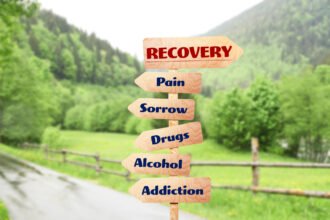No one can deny that substance abuse is among the costliest and most pressing problems of modern society. What’s alarming is that those who suffer from substance abuse disorders exist in considerable numbers in all age groups. Given that, it is important to understand what substance abuse really is and how it turns into a problematic disorder. In this article, we present four points that every person should know about substance abuse/dependence.
Substance Abuse is Predicted Both by Nature and Nurture
In psychology and other social sciences, debates regarding the prevalence of nature versus nurture are still ongoing. In substance abuse, however, it is safe to say that both forces play very significant roles. People who abuse drugs, alcohol, and other substances tend to be surrounded by people who are substance abusers themselves. In other words, peer pressure is strong, and it is this force that pushes many to engage in the same self-destructive behavior. There are studies showing that substance abuse is often preceded by adverse life events such as a bitter divorce, death within the family, and loss of employment. It’s as if the person abusing drugs and other substances uses them as an escape from the stresses brought about by their difficult circumstance. But why is it that not all people who went through great trauma abuse drugs? And among those who do abuse, why is it that not all of them get addicted? This is where internal factors such as the person’s genetics come in to play. This is a bit of a controversial claim, but many believe that there are people who are more prone than others to getting addicted to drugs and other substances. It’s in their genes. Because of this, people who have relatives who are addicted to anything should think twice before they experiment with various substances. It might be extra challenging for them to turn back.
There are different types of interventions.
People who want to recover from substance abuse disorder or addiction actually have various options. There are medically assisted treatment programs that work best if the substance abuse disorder occurs with other mental illnesses such as depression and anxiety attacks. This type of intervention also works for physically addicted individuals (more on this in the next subsection). In this method, medications that aim to control mood and suppress cravings are administered. Then there is the community-based method. In this approach, the immediate family of the patient really has to be involved. The point of this type of intervention is to make the patient better able to resist the temptations of drugs and alcohol by building up their family/community bonds. They also learn how to say no to invites from substance abusing friends and they are taught to control their thoughts should their cravings come from within.
There are two types of addiction: physical and psychological.
In one of the previous points, we talked about how some people are just genetically more prone than others to getting addicted. This specifically means that they are more likely to develop the physical type of dependence or addiction to drugs and other substances. When a person becomes physically dependent, there are actual changes in the circuitry of their brain, especially in those parts where dopamine-related neural activities usually happen. Dopamine, by the way, is the neurotransmitter responsible for feelings of pleasure associated with substance use. There are also those who are psychologically addicted to/dependent on a particular substance. These people don’t really experience the actual brain changes that people with a physical dependency do, but they have a strong belief that they cannot function without the stimulation from the substance that they abuse. Sometimes, this belief is so strongly held that it starts to have physical manifestations such as headaches. It is never fair to say that one type of substance dependence is easier to treat than the other. What’s clear is that the two types need different kinds of interventions. The physical type might respond well to medically assisted treatments. The psychological kinds might be addressed using community-based interventions.
Relapse is normal and shouldn’t be treated as a reason to give up the fight
Recovering from substance abuse/dependence is not going to be easy. There will be times of immense weakness where the patient will find it so hard to resist the urge to abuse the substance again. Many of them will give in and enter into a relapse period. On the surface, falling into a relapse looks like the intervention has failed. But this is absolutely not the case. Relapse is really normal, though it is still something that the patient must work hard to avoid. The patient can just consider it as a fall that they have to recover from so that they can continue their journey toward recovery.
Conclusion
Recovering from something as serious as substance dependence is not going to be an easy task. To make things more bearable, the patient must be able to understand their circumstances in the truest possible sense. The four points raised in this article are just some of the things that they must bear in mind.










